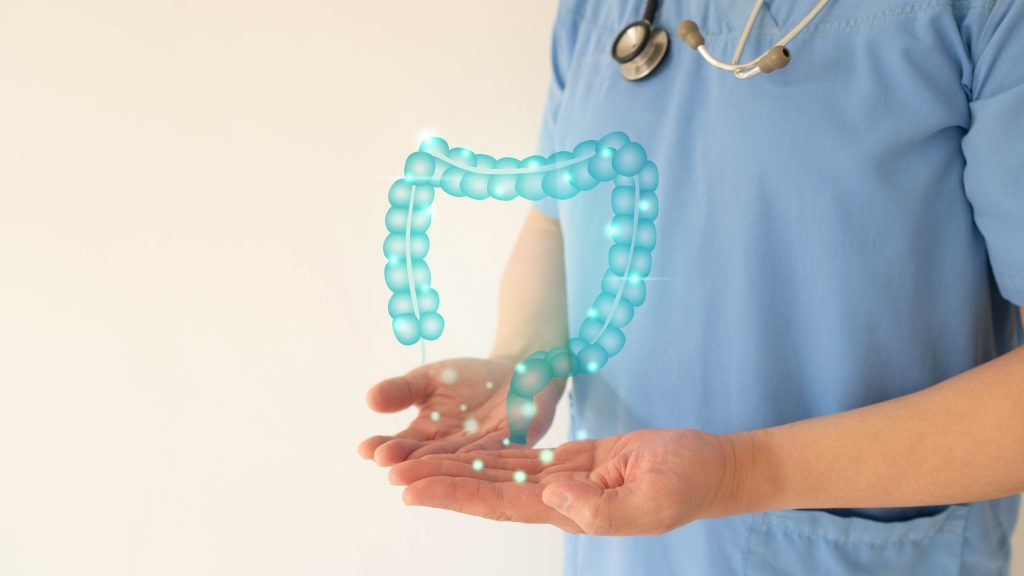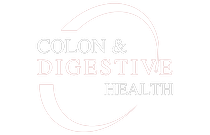How Does a Colonoscopy Help in Detecting Colon Cancer and Polyps?

- colondigestive
- July 29, 2024
- 3:58 pm
- No Comments
As you approach middle age, your doctor may recommend a colonoscopy to screen for colon cancer and polyps. But what exactly does this procedure entail, and how does it help detect these potentially life-threatening conditions? A colonoscopy is a vital tool in the fight against colon cancer, and understanding its role can empower you to take control of your digestive health. In this article, we’ll examine how a colonoscopy works and why protecting your well-being is imperative. Dr. Karim Shakoor provides expert insights into the procedure and its importance.
Key Takeaways:
- Early Detection: A colonoscopy helps detect colon cancer and polyps at an early stage, when they are easier to treat and even prevent. This is especially important for individuals with a family history of colon cancer or those experiencing symptoms such as rectal bleeding or changes in bowel habits.
- Visual Examination: During a colonoscopy, a gastroenterologist uses a flexible tube with a camera and light to examine the inside of the colon and rectum visually. This allows them to identify abnormal growths, such as polyps, and remove them before they become cancerous.
- Polyp Removal: A colonoscopy detects polyps and enables their removal during the procedure. Removing polyps can prevent them from developing into cancer, making colonoscopy a crucial preventive measure.
- Screening and Prevention: Colonoscopy is a vital screening tool for colon cancer, particularly for individuals 50 and older. Regular screenings can help prevent colon cancer by identifying and removing precancerous polyps.
- Expert Care: It’s vital to consult a qualified G.I. doctor, such as Karim Shakoor, M.D., at a reputable colonoscopy clinic, like Colon and Digestive, for a colonoscopy procedure. Their expertise ensures a thorough and accurate examination, providing peace of mind for patients.
Understanding Colon Cancer and Polyps
Before we examine the role of colonoscopy in detecting colon cancer and polyps, it’s crucial to understand what these terms mean and why they are concerning for your health.
What are Colon Polyps?
If you have abnormal growths on your colon or rectum lining, they’re called colon polyps. These growths can be benign or cancerous, and while they may not cause symptoms, they can increase your risk of developing colon cancer if left untreated.
The Risks of Colon Cancer
If you’re 45 or older, you’re at higher risk of developing colon cancer, which is the third leading cause of cancer deaths in the United States. According to the American Cancer Society, in 2022, there will be an estimated 104,610 new cases of colon cancer diagnosed in the U.S
Plus, if you have a family history of colon cancer or polyps, you’re more likely to develop the disease. Additionally, certain lifestyle factors, such as a diet low in fiber and high in fat, lack of physical activity, and obesity, can also increase your risk.
Importance of Early Detection
There’s good news: colon cancer is highly treatable when detected early. The five-year survival rate for colon cancer patients whose cancer is detected at an early stage is around 92%. However, the survival rate drops significantly if the cancer has spread to other body parts.
Early detection allows your doctor to remove polyps before they become cancerous. If cancer is detected, treatment can begin promptly, improving your chances of recovery. Regular colonoscopies can ensure that any issues are caught early, giving you the best possible outcome.
How a Colonoscopy Works
Assuming you’re scheduled for a colonoscopy, you may wonder what the process entails. Here’s a breakdown of what you can expect:
Preparing for a Colonoscopy
Little preparation is required, but it is vital to follow your doctor’s instructions carefully. You’ll typically be asked to avoid eating solid foods for a day or two before the procedure and stick to a liquid diet. You may also need to take medication to cleanse your colon.
The Colonoscopy Procedure
A colonoscopy is a minimally invasive procedure in which a flexible tube with a camera and light on the end, called a colonoscope, is inserted into the rectum and guided through the colon.
This allows your gastroenterologist, such as Dr. Karim Shakoor, M.D. at Colon and Digestive in Conyers, GA, to visually examine the inside of your colon and rectum for any abnormalities, including polyps or cancer. The procedure usually takes around 30-60 minutes to complete.
What to Expect During a Colonoscopy
You’ll lie on your side or back during the procedure. As the colonoscope is inserted, you may feel discomfort or pressure. You may also feel bloating or cramping, but these sensations are usually mild and temporary.
Colonoscopy is generally a painless procedure, and you’ll be awake throughout. Your doctor may also use air to inflate your colon to get a better view, which can cause some discomfort. However, this is usually mild and resolves quickly.
How a Colonoscopy Helps in Detecting Colon Cancer and Polyps
All individuals over the age of 50 are recommended to undergo a colonoscopy to detect colon cancer and polyps. This screening test is crucial in identifying abnormalities in the colon and rectum, allowing for early intervention and treatment.
Identifying Abnormalities in the Colon
An experienced gastroenterologist like Dr. Karim Shakoor, M.D. will perform a colonoscopy to examine the inside of your colon and rectum visually. During the procedure, they will look for any abnormalities, such as polyps, ulcers, or bleeding, which can be indicative of colon cancer or other digestive health issues.
Removing Polyps During a Colonoscopy
For your protection, if any polyps are detected during the colonoscopy, they can be removed immediately. This is a preventive measure to reduce the risk of colon cancer, as some polyps can become cancerous over time.
It’s vital to remove polyps because they can grow and eventually turn into cancer. By removing them during the colonoscopy, you can significantly reduce your risk of developing colon cancer.
Reducing the Risk of Colon Cancer
Colonoscopy screening has been proven to reduce the risk of colon cancer by up to 90%. This is because it allows for detecting and removing precancerous polyps, preventing them from becoming cancerous.
Polyps can grow slowly over many years, and regular colonoscopy screenings can help identify and remove them before they become a problem. These screenings can also significantly reduce your risk of developing colon cancer and ensure your digestive health remains strong.
Tips for Preparing for a Colonoscopy
Proper preparation is essential for a successful and stress-free colonoscopy. This will help ensure that your doctor can get an accurate view of your colon and detect any potential issues.
- Follow a special diet.
- Avoid certain medications
- Ensure proper hydration
Following a Special Diet
You must follow a low-fiber diet for a few days before the procedure. This means avoiding nuts, seeds, and raw vegetables and choosing low-fiber foods like bananas, rice, and applesauce.
Avoiding Certain Medications
Special care should be taken with medications, especially blood thinners, iron supplements, and certain antibiotics, as they may interfere with the procedure or increase the risk of bleeding.
Following your doctor’s instructions, you may need to stop taking these medications a few days before the colonoscopy. Discuss your medications with your doctor to determine the best course of action.
Ensuring Proper Hydration
Drinking enough fluids is crucial to helping cleanse your colon and ensure a successful procedure. You’ll need to drink a colonoscopy prep solution, which may taste unpleasant, but it’s important to clear your colon.
Medications like laxatives or stool softeners may also be prescribed to help with the cleansing process. Follow the instructions carefully and drink plenty of water to stay hydrated.
Factors That Increase the Risk of Colon Cancer
Not everyone is equally likely to develop colon cancer. Certain factors can increase your risk of developing this disease. Understanding these factors can help you take proactive steps to reduce risk and stay on top of your colon health.
Some of the key factors that increase the risk of colon cancer include:
- Age and family history
- Lifestyle factors
- Medical conditions
After understanding these factors, you can take steps to reduce your risk and stay healthy.
Age and Family History
Factors such as your age and family history can play a significant role in your risk of developing colon cancer. Suppose you are over 50 or have a family history of colon cancer. In that case, you are at a higher risk of developing the disease.
Lifestyle Factors
Family history is not the only factor that can increase your risk of colon cancer. Lifestyle factors such as:
- A diet low in fiber and high in fat
- A lack of physical activity
- Obesity
- Smoking
This combination of factors can increase your risk of developing colon cancer.
That being said, making healthy lifestyle choices can help reduce your risk. Eating a balanced diet rich in fruits, vegetables, and whole grains, staying physically active, and maintaining a healthy weight can all help keep your colon healthy.
Medical Conditions
Increase your risk of colon cancer include certain medical conditions such as:
- Inflammatory bowel disease (IBD)
- Type 2 diabetes
- Radiation therapy for cancer
This does not mean that you will develop colon cancer if you have one of these conditions. However, it does mean that you should be more vigilant about getting regular colon cancer screenings.
This is especially important if you have a family history of colon cancer or other risk factors. You can develop a screening plan tailored to your needs and risk factors by working with your doctor.
What to Expect After a Colonoscopy
Once again, after the colonoscopy procedure, you will be taken to a recovery area where you can rest and recover from the sedation. Your doctor will discuss the procedure results with you, and you may need to wait briefly before driving home.
Results and Follow-up Care
With the results of your colonoscopy, your doctor will discuss any findings, including the presence of polyps or cancer, and recommend further treatment or follow-up care. You may need to schedule a follow-up appointment to discuss the results in more detail.
Managing Any Discomfort or Side Effects
On the day of the procedure, you may experience some discomfort, bloating, or gas due to the air inserted during the colonoscopy. You may also feel a bit groggy from the sedation.
Side effects from a colonoscopy are usually mild and temporary. You can manage any discomfort by taking over-the-counter pain medication, such as ibuprofen or acetaminophen, as directed by your doctor. Drinking plenty of fluids is also important to help flush out your system and reduce any bloating or discomfort.
When to Seek Further Medical Attention
The results of your colonoscopy may indicate the need for further medical attention. If you experience severe abdominal pain, vomiting, bleeding, or difficulty breathing after the procedure, seek immediate medical attention.
To ensure your safety, it is crucial to follow your doctor’s instructions carefully and attend any scheduled follow-up appointments. If you have any concerns or questions after the procedure, don’t hesitate to contact your doctor or healthcare provider.
To wrap up
Following this overview, you now better understand how a colonoscopy helps detect colon cancer and polyps. By undergoing a colonoscopy, you can rest assured that your doctor will be able to identify any potential issues in your colon, allowing for early treatment and prevention of colon cancer. Don’t hesitate to schedule a colonoscopy with a trusted gastroenterologist, such as Dr. Karim Shakoor, M.D. at Colon and Digestive in Conyers, GA, to take control of your digestive health.
FAQ
Q: What is the primary purpose of a colonoscopy, and how does it help detect colon cancer?
A: The primary purpose of a colonoscopy is to visually examine the inside of the colon and rectum to detect any abnormalities, such as colon cancer, polyps, or other conditions. During a colonoscopy, a gastroenterologist uses a flexible tube with a camera and light to explore the colon and rectum. This allows them to identify any suspicious growths, including cancerous and precancerous polyps, which can be removed during the procedure to prevent them from developing into cancer.
Q: How effective is a colonoscopy in detecting colon polyps and cancer?
A: Colonoscopy is an extremely effective screening tool for detecting colon polyps and cancer. Studies have shown that colonoscopy can detect up to 95% of colon polyps and cancers. Additionally, removing polyps during a colonoscopy can reduce the risk of developing colon cancer by up to 80%. Early detection and removal of polyps can also improve colon cancer patients’ treatment outcomes and survival rates.
Q: What are the benefits of having a colonoscopy performed by a skilled gastroenterologist, such as Dr. Karim Shakoor, M.D.?
A: Having a colonoscopy performed by a skilled and experienced gastroenterologist, such as Dr. Karim Shakoor, M.D., can ensure that the procedure is performed safely and effectively. A skilled gastroenterologist has the expertise to navigate the colon and rectum, identify abnormalities, remove polyps, or take biopsies if necessary. This can lead to more accurate diagnoses and better treatment outcomes.
Q: How often should I have a colonoscopy to screen for colon cancer and polyps?
A: The American Cancer Society recommends that adults with an average risk of colon cancer start screening at age 45 and continue every ten years after that. However, your doctor may recommend a different screening schedule based on your risk factors, such as family history, medical history, or previous colonoscopy results. It’s important to follow your doctor’s recommendations to ensure timely detection and prevention of colon cancer.
Q: What happens during a colonoscopy procedure, and what can I expect during and after the exam?
A: During a colonoscopy, you’ll lie on your side, and the gastroenterologist will insert the flexible tube into your rectum and guide it through your colon. You may feel discomfort or pressure during the procedure, but it’s usually mild and temporary. After the procedure, you may experience some bloating or gas, but these symptoms typically resolve within a few hours. Your doctor will discuss the results with you and guide any further testing or treatment.
Karim Shakoor, M.D. is a board-certified gastroenterologist and founder of Colon & Digestive Health Specialists, LLC. He completed his residency and fellowship at Cook County Hospital, which is known for having one of the most extensive programs in the country. Karim Shakoor, M.D. is dedicated to providing his patients with the highest level of care to improve their quality of life. He specializes in the treatment of digestive disorders, including abdominal pain, colon cancer, constipation, diarrhea, diverticulitis, gas, gastrointestinal bleeding, heartburn, irritable bowel syndrome, peptic ulcers, swallowing difficulty, and ulcerative colitis.
Schedule an appointment | Google Maps | Services| About Us
© 2024 All Rights reserved © 2024 by Colon & Digestive Health Specialists

